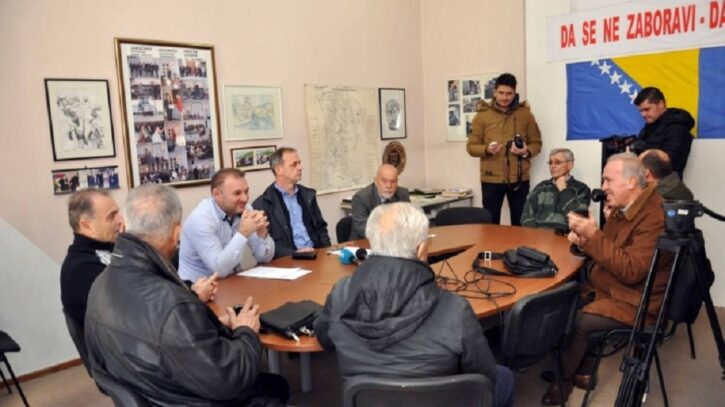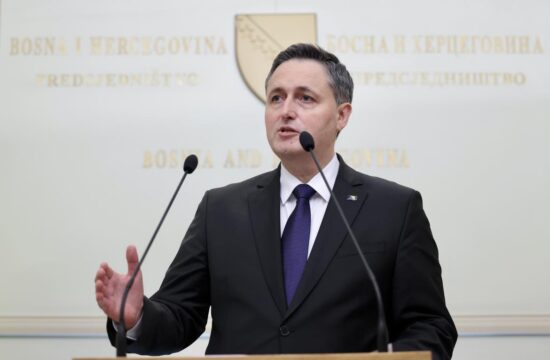
Members of the Association of Former Prison Camp Inmates from Mostar are marking on Thursday the anniversary of the pronouncement of the guilty verdict to six top wartime Bosnian Croat officials and said they would mark every future anniversary of the ruling, so the committed crimes are never forgotten.
One of the ways to show that the memory is kept alive would be government help to associations of former inmates who have lived through the prison camps of so-called Herzeg-Bosnia, said the head of the steering board of the Association, Edin Batlak.
Batlak touched upon a recent ruling by a Croatian court that reduced the sentence a Bosnian court had handed down to a Bosnian Croat war criminal. The reduction came when the convict was transferred to Croatia to serve his sentence.
The Zagreb court reduced the sentence because it does not recognise ‘joint criminal enterprise’ as a crime.
Part of the convict’s sentence in Bosnia related to the same joint criminal enterprise the six former Bosnian Croat political and military leaders were sentenced for in The Hague in 2013. Their verdict was upheld by the Appeal Chamber of the International Criminal Tribunal for the former Yugoslavia (ICTY) on November 29, 2018.
The Hague-based court also ruled that certain Croatian leaders at the time were also part of the joint criminal enterprise during the 1992-95 war in Bosnia.
Croatia rejected that qualification.
“Our goal is to try and find a way to circumvent the Croatian judiciary and directly appeal to Strasbourg so that we can achieve our rights, and for this, we will need help from Bosnia’s state institutions,” he said, referring to the European Court of Human Rights in Strasbourg.
Batlak emphasised that the joint criminal enterprise does not include the entire Croat population but relates to a bad kind of politics of the Croatia's wartime leadership.
“We are opposed to advocating for and creating a narrative of collective guilt. The guilt was individual and sits with the (former Croatian) state leadership,” he explained.
According to a member of the Association, Emir Hajdarevic, the goal of the meeting was to raise awareness among the Bosnian public on the fact that it has been a year since the Hague Tribunal sentenced the six Bosnian Croat top officials.
“No political or any other kind of organisation that was established in or emerged as a result of the war found it necessary to raise awareness to this valid ruling by the International Court,” said Hajdarevic.
That is why his association has an obligation to do so, he explained, adding that it will organise gatherings to mark the ruling annually from now on.
He said that any political party that enters the government must take action so that the former inmates in the country could finally be included in the Law on Torture Victims.
“Former prison camp inmates are not recognised in this law,” said Hajdarevic, explaining that “the basic battle the Association of Prison Camp Inmates is engaged in is for our members and all those who survived any prison camp to achieve some rights that will be formalised in laws and known in the general social sphere.”





